A Detailed Look at the Cast of The Office
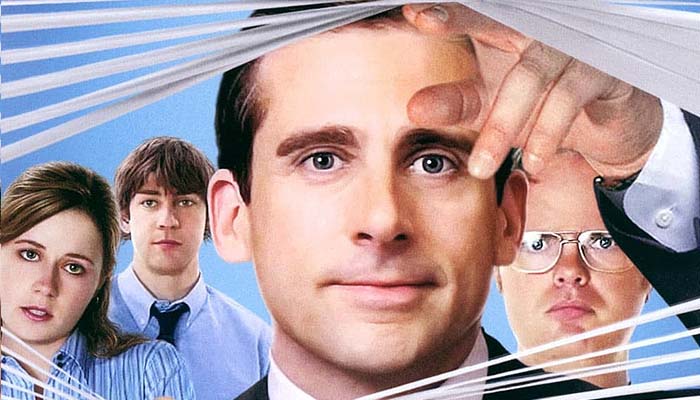
When the British mockumentary sitcom series known as The Office was released in 2001, few could have predicted what a smash hit it would eventually become. By the series’ ten-year anniversary there were no fewer than six different versions of the series around the world, the latest of which was the Israeli show HaMisrad. 1 As of 2023, six additional adaptations have been released, with a few more still in the works. 2 Clearly, there is something about ridiculous bosses and banal office politics that resonates with people all over the world. Despite cultural differences, one thing that has remained fairly consistent in all the different versions of The Office is its cast structure. The different adaptations all have remarkably similar sets of characters, even if they have slightly different personalities and go on different adventures.
Different Versions of The Office
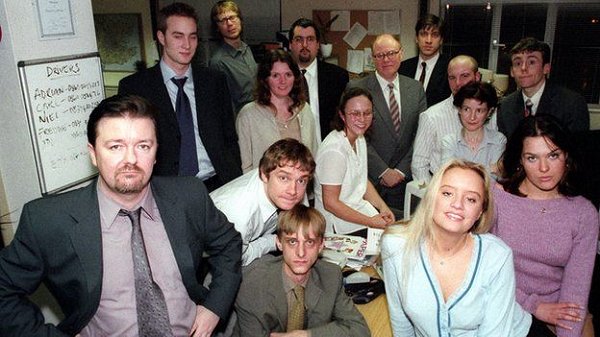
Currently, there are more than a dozen adaptations of The Office that have ever been released, in more than ten different languages. 3 Because of this, it would be virtually impossible for one person to familiarize themself with every single adaptation. As such, this article will henceforth focus primarily on six of these adaptations: the two English-language versions (from the UK and the US), two French-language versions (the French Le Bureau and the French-Canadian La Job), the Spanish-language La Ofis, and the German Stromberg.
The two English-language versions of The Office–from the UK and the US–share a similar arc structure. Both tell the story of the career and departure of a middle manager at a paper company (Wernham-Hogg in the British version and Dunder-Mifflin in the US version), and the subsequent ascent to power of his second-in-command. However, the US Office is longer and more drawn out, and also has a much darker and more cynical tone. Although the original British version started everything, most later adaptations draw just as much inspiration from the US version, if not more. This is likely because the US version gives people more jokes and material to work with.
The two French-language adaptations share the characteristic of adhering very closely to the original British script, whereas most other versions take more liberties. Le Bureau, which was made in France, encompasses only the first six episodes of the British Office, whereas La Job adapts the complete British series. Both of these series can be found on YouTube, and La Job at least has relatively good subtitles.
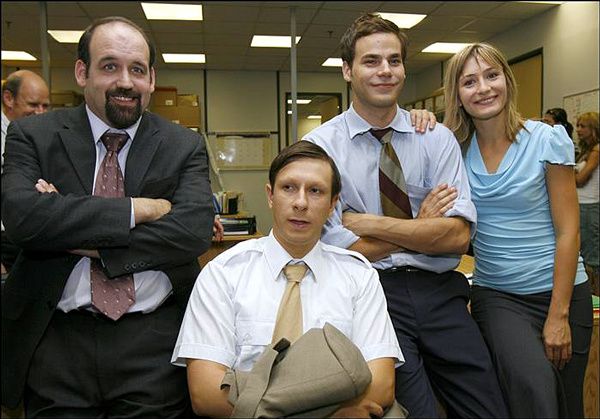
La Ofis, the Spanish-language adaptation, is set in Santiago, Chile. Like the original British version, it is twelve episodes long, but the sequence of events and ending are somewhat different. It also has some of the longest episodes of any version of The Office, with each one being nearly forty minutes long. The series draws inspiration from the original British Office and its US adaptation fairly equally, and was a cult classic throughout Latin America. 4 It can be watched on YouTube.
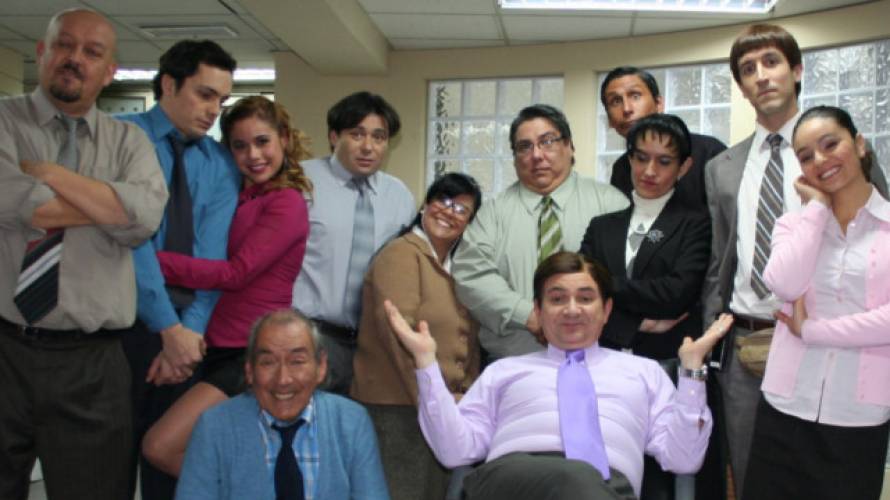
Of all the Office adaptations, the German Stromberg may just be the darkest, as well as the most interesting. Stromberg was technically the first adaptation of The Office to be made, but was not originally intended as an adaptation. However, when Gervais and Merchant, the creators of the original, found out about the similarities between Stromberg and their own series, they got very upset. 5 As such, the writers of Stromberg began crediting Gervais and Merchant at the end of every episode, and nowadays it is considered an Office adaptation like any other. 6 However, Stromberg remains the only version of The Office to depict a company selling insurance instead of paper or office supplies, as well as the only one that does not mention an office or job anywhere in its title. The series was wildly popular in its native Germany–so much so that a crowdfunding campaign for a feature film raised one million euros in the span of just one week. 7
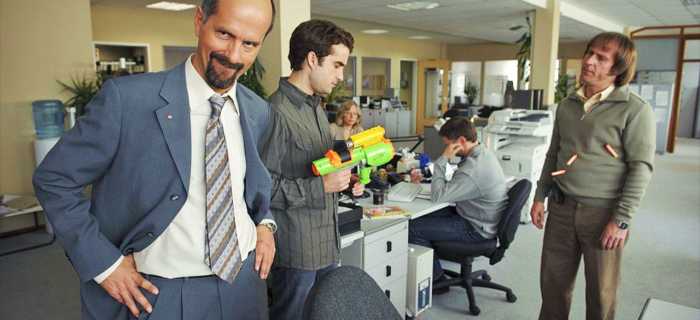
Stromberg is more like the US Office than the original British Office, both in terms of length and many of the artistic decisions made. In fact, Stromberg actually pioneered several of the tropes that are often associated with the US Office. For instance, Stromberg was the first series to make the boss’s love life a recurring plot point. However, Stromberg shares with the original British version a dry sense of humor as well as a determination to portray people who look, act, and sound like real office staff. For instance, it is likely the only version of the story in which managers and corporate higher-ups are referred to by their surnames, as would happen in a real company, rather than by their given names.
Taken as a whole, these six series include three from Europe (the British Office, Stromberg, and Le Bureau), and three from the Americas (the US Office, La Job, and La Ofis). Of the five adaptations, two adhere very closely to Gervais and Merchant’s original script, two go in completely different directions, and one (La Ofis) falls somewhere between these extremes. However, though these stories differ substantially, their similarities are even more significant, particularly in terms of their casts.
The Cast of The Office
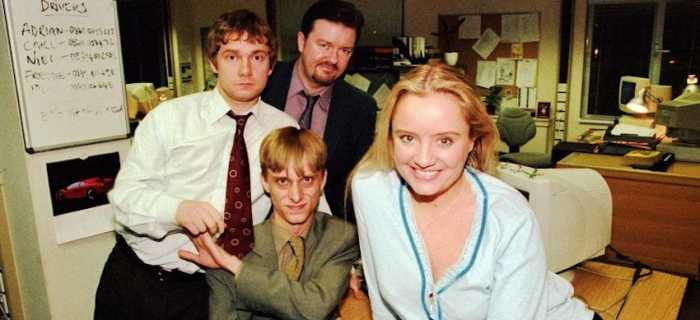
The backbone of every Office adaptation is its four main characters. For convenient reference, these characters will henceforth be referred to as the Unprofessional Boss, the Everyman (or Audience Surrogate), the Annoying Coworker, and the Love Interest. The first three are always male, whereas the last is always female, and in most versions they occupy the positions of a regional manager, two salesmen, and a receptionist, respectively. In Stromberg, because the characters work at an insurance company, the main cast instead consists of a regional manager and three claims-processing clerks, but their plot roles are identical to those found in every other version. Each of these four characters may, depending on the version, vary a little in prominence in relation to one another, but all four could be considered main characters.
Most versions of The Office also share a whole slate of supporting characters. These characters are not found in every version, and tend to vary more than the main cast in terms of their precise personalities and roles, but are still recognizable. Some examples of characters who fall into this category include the Traveling Salesman, the Funny Accountant, and the Female Corporate Higher-Up, among others. These characters will be explored in later sections of the article.

The US Office, with its nine-season run, introduced still more characters. Some of these characters also have counterparts in later adaptations, such as La Ofis and HaMisrad. Some characters in the US Office also bear a resemblance to those of Stromberg. For instance, Stanley Hudson and, to a lesser extent, Kevin Malone, have some traits in common with Stromberg’s Erika Burstedt. Along similar lines, the boss character Charles Miner is a soccer fan just like Timo Becker, a corporate higher-up from Stromberg who plays a similar role. It is hard to know how many of these similarities are intentional, however, as the cast of the US Office would have to know German in order to watch Stromberg in the first place.
The Unprofessional Boss
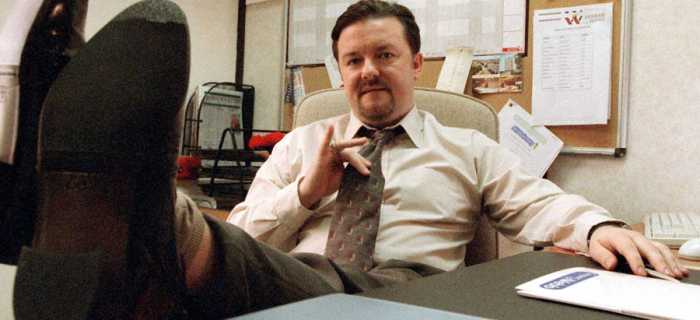
The main face of every version of The Office is the abusive, manipulative Unprofessional Boss. Lazy, vulgar, vain, selfish, and intolerant, he is an amalgamation of everything that people normally despise in their managers. Despite this, he so lacks self-awareness that he genuinely believes himself to be a great boss who is loved by his staff and the company as a whole. David Brent, the first ever Unprofessional Boss, summarizes this attitude well when he says: “I suppose I’ve created an atmosphere where I’m a friend first, and a boss second. Probably, entertainer third.”
Of all of the Unprofessional Boss’s many problems, the one that gets him in the most trouble is likely his prejudice towards those who are different from him. The Unprofessional Boss is both intensely misogynistic and profoundly racist, traits that he either denies or revels in, depending on his audience. The racism of the Unprofessional Boss shows up even in series that take place in “non-white” countries. For instance, Manuel Cerda, the boss of La Ofis, often makes fun of an employee named Jesus because he comes from Peru. Similarly, Avi Meshullam, the boss of the Israeli series HaMisrad, routinely stereotypes his Arab Muslim employees, even going so far as to speculate that one of them might be a terrorist in disguise!

To keep the audience sympathetic to the Unprofessional Boss, and invested in his story, the series will employ various acts of narrative trickery. The US Office, in particular, will often frame the characters that Michael Scott comes into conflict with as villains or creeps just so that Michael can continue to look sympathetic by comparison–even if Michael himself started the conflict in the first place. It’s also common for the Unprofessional Boss to succeed in an endeavor through sheer luck, or another character covering for him, which allows him to momentarily look good.

On the other hand, some Unprofessional Bosses do show a certain amount of care and concern for their staff and colleagues. For instance, Gilles Triquet, the boss from Le Bureau, seems to genuinely like his staff, and generally comes across as more incompetent than intentionally malicious. Manuel, from La Ofis, also goes out of his way to give his staff a good time, and sometimes even succeeds. His decision to throw a funeral party for Don Lozano, the late owner of the paper company he works for, also seems genuinely heartfelt, although his primary objective remains to curry favor with Jimena Lozano, the firm’s current owner.

Most characters in The Office have a distinct “look,” and the Unprofessional Boss is no exception. Although he can have any set of features, he almost never looks like a serious boss who inspires confidence in his work ethic. Bernd Stromberg, the German Unprofessional Boss, comes the closest, but his goofy facial expressions and gestures, which he makes at every available opportunity, give the game away before too long. It’s typical for the Unprofessional Boss to be overweight, sometimes dramatically so. If he isn’t overweight, he’s often relatively small. Michael Scott, for instance, is dwarfed by at least three other regular cast members–including both his male costars. Similarly, Ove Sundberg, the Swedish Unprofessional Boss, is notably shorter than his underling Viking Ytterman. David Gervais, from La Job, is both short and fat.
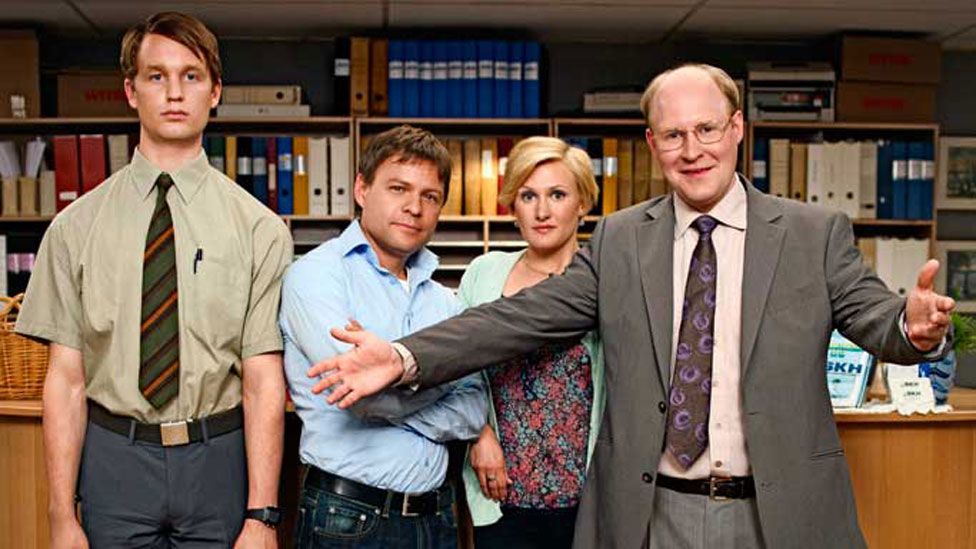
Strangely, one trait that the Unprofessional Boss rarely demonstrates–perhaps on account of his laziness–is a cutthroat mentality or a desire to get ahead at all costs. Of course, most Unprofessional Bosses will accept a promotion if one is offered to them. However, the only one who makes a concerted effort to climb the corporate ladder or step on those in front of him to do so is Bernd. He often compares his job to a war zone, with sayings such as “Buro ist Krieg (office is war),” which reflects his ruthlessness and delusions of grandeur.
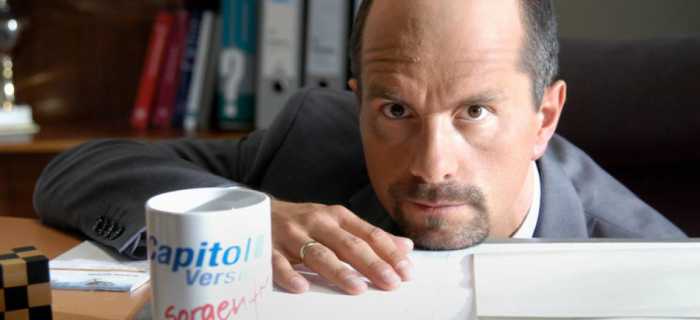
Still, most of the time, the Unprofessional Boss is more concerned with his artistic and creative ambitions, which often take precedence over his managerial role. The boss’s actual artistic talent varies. David Brent and David Gervais, at least, can play real songs on an acoustic guitar. By contrast, Gilles plays only an electronic keyboard in the shape of a guitar, which comes with its own synthetic track. Avi has perhaps the most ridiculous setup of all: though he owns an acoustic guitar, he is never shown strumming it. Instead, he simply holds and taps on it while singing everything a capella.

Most versions of The Office include a scene in the first episode in which the Unprofessional Boss invites his receptionist into his office and jokingly threatens to fire her for stealing Post-It notes. When she begins to cry, however, he’s forced to walk the joke back. YouTuber Full Fat Videos notes that one of the unsolved mysteries of The Office is how far he would have taken the joke had the receptionist not responded as quickly and strongly as she did. 8
The Everyman (or Audience Surrogate)
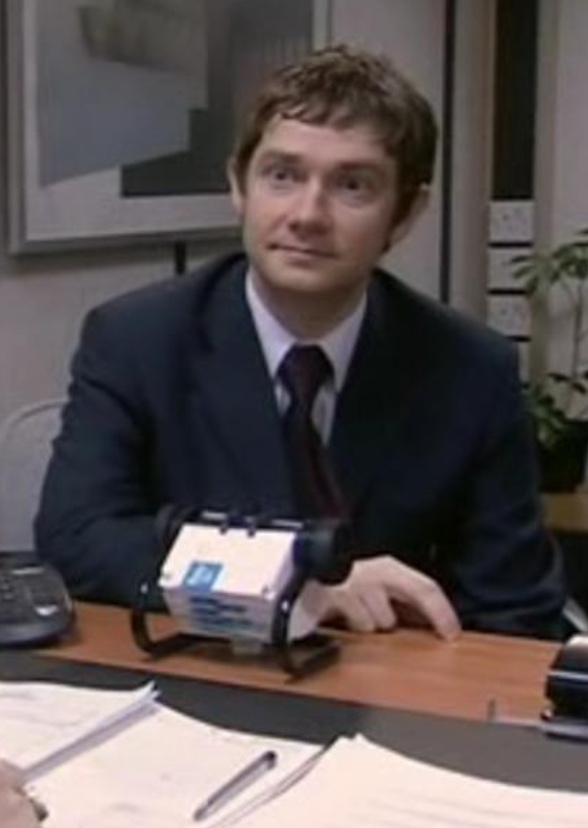
The Everyman (or Audience Surrogate), as his title suggests, is the character whom the audience members are meant to project themselves onto. As such, he is usually the one who receives the most official narrative sympathy, and is often thought of as the “real” main character. He has a good reputation among his colleagues due to his sense of humor, but is dissatisfied and bored with his job. He often plays practical jokes in order to make his work day more interesting, with the Annoying Coworker as his usual favorite target. Besides the Unprofessional Boss, the Everyman is the character most aware of the camera, and he can often be seen casting passive-aggressive glances toward the camera crew during particularly chaotic or dramatic scenes. Jim Halpert, the Everyman from the US Office, is so well-known for his interactions with the camera that the fandom coined the term “Jim look” to describe his facial expressions. 9

The Everyman’s dissatisfaction stems from the assumption that most people hate where they work, and so a character who hates his job will be instantly relatable. Though the Everyman need not be a slacker–in La Ofis, Manuel singles out Everyman Diego Ramirez as his best salesman, for instance–he very often is. The original British Office takes things even further, portraying Tim Canterbury as a loser. By his own admission, Tim lives with his parents at the age of thirty, has no friends, and spends most evenings watching pornographic videos by himself. By contrast, Jim and Ulf Steinke, the Everyman from Stromberg, have much better social skills and are depicted as “one of the boys.” Both of these men have friends and love lives and enjoy typical “guy” hobbies like sports and cars. This is a double-edged sword, however, as the less pathetic and victimized the Everyman is the more he becomes, in the words of YouTuber captainmidnight, “[a] smug cool guy picking on a lovable loser.” 10
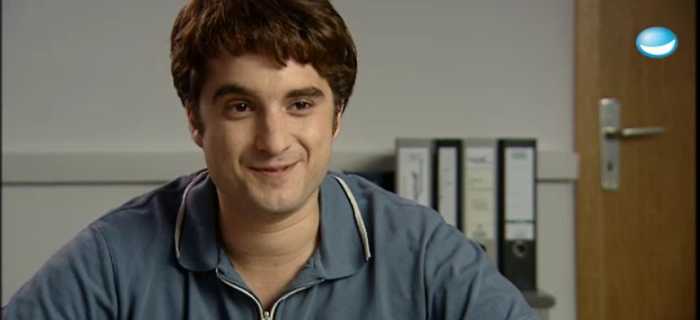
Most of the sympathy the Everyman commands is due to his self-image as the victim of a drab, uncaring workplace and a ridiculous boss. Very rarely does he come across as an actual good person. Though he jokes around with his colleagues sometimes, he shows little care for, or indeed interest in, any of them other than the Love Interest, whom he is attracted to. Though he claims to be lonely, if he does manage to find a girlfriend who isn’t the Love Interest, he ultimately dumps her with little remorse before the relationship has a chance to become serious. Moreover, since he can’t rely on his work ethic to impress his boss, he attempts to remain on his good side by flattering and sucking up to him. It’s also exceedingly rare for the Everyman to seriously question or challenge anything the Unprofessional Boss does, no matter how destructive it is. Many Everymen show signs of vulnerable narcissism, believing themselves to be victims of those who don’t realize how superior they are. 11 Both Tim and Jim, for instance, express the belief that they are too good for their current roles, and deserve to be handed “better” jobs or more opportunities than they already have.
One of the roles played by the Everyman in the original British Office and Stromberg–which got lost over time–is that of a younger and more “innocent” version of his boss. YouTuber Full Fat Videos describes the relationship between David and Tim thusly:
There are easy parallels to draw between David and Tim and it’s arguable that Tim represents the David that used to be liked by his colleagues. Both of them play practical jokes, both of them have a crude sense of humor, and both of them routinely fail to take their work seriously. Except Brent is the boss, and he should know better. He has to act differently, but he is incapable of doing so.
12
In Stromberg, Bernd and Ulf share a similar dynamic. The two men often plot and scheme together, flirt with all the same women, and even look somewhat similar. Bernd will sometimes make Ulf do his job for him, and even offers Ulf his old post when he is trying to get himself promoted. Moreover, Bernd’s ex-wife, Brigid, who shows up in the first two seasons, looks suspiciously like an older version of Ulf’s Love Interest, Tanja Seifert.
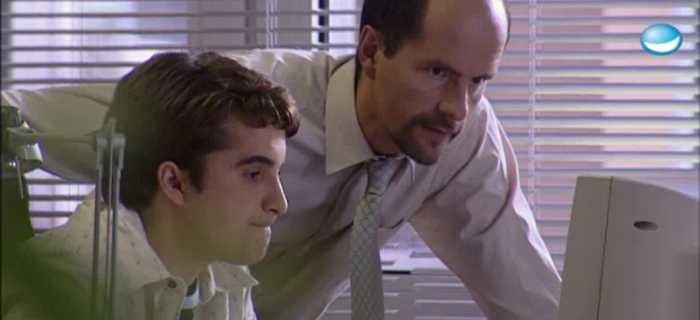
Generally speaking, the Everyman tends to be blandly attractive, with a boyish face and curly or wavy hair. One quasi-exception to this rule is Yossi, the Everyman from HaMisrad, who looks less boyish, but more “normal,” than his Annoying Coworker, Yariv. Beyond this, however, the Everyman can have a wide range of skin and hair colors, and come in a variety of heights and builds. For instance, whilst Tim is thin, pale, and somewhat delicate-looking, Jim is tall and athletic, and their Canadian counterpart Louis Tremblay is stocky and tan.

In the first several Office adaptations, the Everyman and Annoying Coworker did not differ much in terms of height, build, or age. The reason for this, as actors Martin Freeman and Mackenzie Crook explained, is that the rivalry between the characters only works if neither has a clear physical advantage over the other. 13 Later adaptations, however, abandon this axiom; Diego, in La Ofis, is significantly smaller and slighter than his Annoying Coworker Christian Muller, whereas Yossi is distinctly taller than Yariv. This might be one reason for the “softening” of the Everyman character in later generations of The Office. Tim, Ulf, and Jim can be quite nasty and mean-spirited, especially to their Annoying Coworkers, and many of their practical jokes cross the line into genuine cruelty. Later Everymen spend less time and energy on their pranks, and the pranks they do play tend to be milder, with more emphasis on causing the Annoying Coworker to act silly than on personally belittling or humiliating him.
The Annoying Coworker
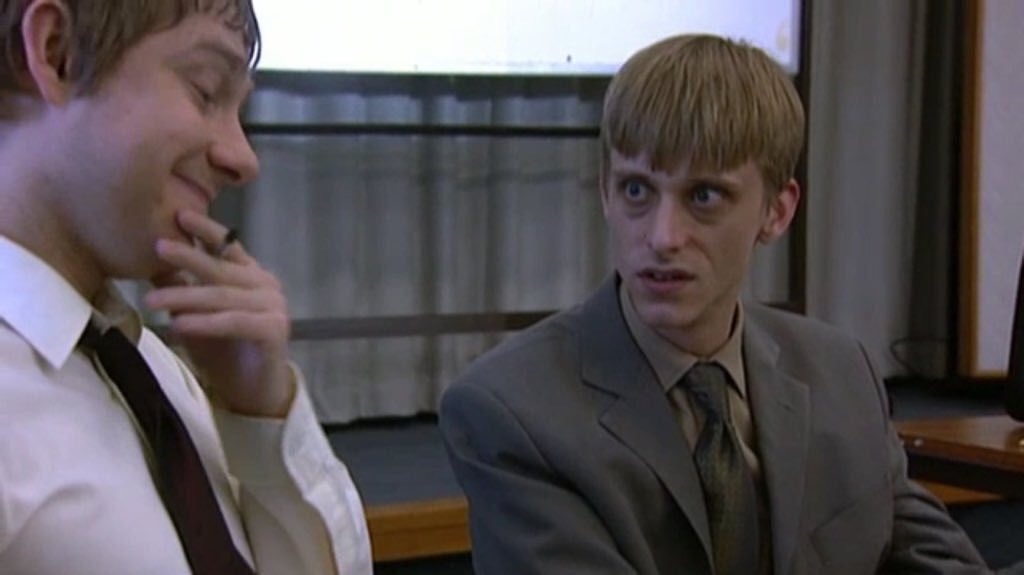
The Annoying Coworker is the complete opposite of the Everyman: a hard and serious worker whose personality makes him unpopular around the office. Exactly what makes him annoying tends to vary, and can include anything from harassing people to carrying around objects that make irritating noises. It’s also common for the Annoying Coworker to be obsessed with sex, which he may or may not be having.

The cultural context of the series, and to some extent the timing of its release, set the standard for how far the Annoying Coworker’s behavior can go. Gareth Keenan, the British Annoying Coworker, was seen as very rude when The Office first came out, even though his actions seem relatively mild in hindsight. This is likely owing to the British emphasis on politeness and decorum, 14 as well as the fact that, at the time, there was no one to compare him to. By contrast, Dwight Schrute, Gareth’s counterpart in the US Office, is a borderline sociopath!
The Annoying Coworker is often prejudiced, albeit to a lesser extent than the Unprofessional Boss. Some versions of the series attempt to explain his prejudices by chalking them up to his time in the army or the “traditional, rural, conservative values” 15 that he grew up around. In a few adaptations the distinction between a “conservative” Annoying Coworker and a more “progressive” Everyman is made very explicit. For instance, in La Job, when Annoying Coworker Sam Bisaillon is worried about losing his job, he says to Louis: “You, you’re pro-woman, pro-immigrant even after September 11, pro-handicapped, you have chosen your clan, man!”

The Annoying Coworker walks a fine line throughout the series, as he has to be annoying without seeming consciously malevolent. One of the ways the series attempts to engender sympathy for him is by involving him in health and safety initiatives or community service, where he can demonstrate some care and concern for others. Traditionally, the Annoying Coworker is a military man, but that’s not always the case. For instance, Dwight is a volunteer sheriff’s deputy in Lackawanna County, and Christian, the Annoying Coworker from La Ofis, is a volunteer firefighter (who annoys Diego by bringing his radio to work with him).
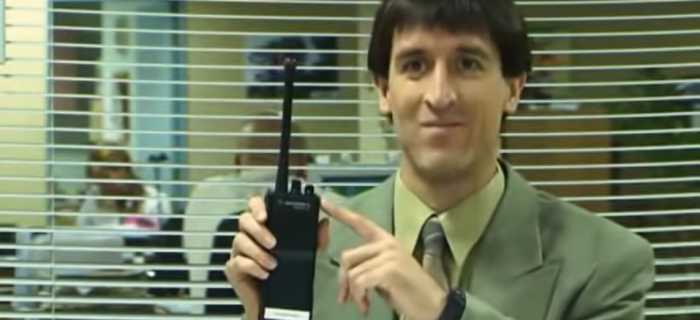
A common misconception about the Annoying Coworker is that he lacks social skills. In reality, this is only true some of the time. The English-speaking Annoying Coworkers actually have better social skills than their bosses, and in some instances even than the Everymen. Stromberg’s Berthold “Ernie” Heisterkamp is an example of an Annoying Coworker who truly struggles with social skills–so much so that his mother acts as his social advisor until her death at the beginning of Season Three. Despite this, Ernie does in fact have some success with women. He goes on several dates throughout the course of the series, including one with a stripper named Sally from the town of Finsdorf.

The Annoying Coworker shows more variation than the Everyman in terms of his appearance. Whilst the Everyman is blandly attractive and boyishly handsome, the Annoying Coworker typically has one or more odd or unusual features. He need not be ugly per se (both Dwight and his French counterpart Joel Liotard are fairly handsome), but his strange appearance gives him an edge that the Everyman lacks, and makes him harder to take seriously. Nearly all Annoying Coworkers have ridiculous haircuts, but Christian takes it to a whole other level, in that he very often has one or more strands of hair sticking out at odd angles!
Perhaps owing to his dual nature as an irritating but devoted and conscientious employee, the Annoying Coworker shows the most variation of any of the main characters in terms of his moral standing. The Unprofessional Boss is always horrible, the Everyman ranges from as bad as his boss to somewhat more sympathetic, and the Love Interest tends to occupy a middle ground, being neither especially good nor bad. By contrast, the Annoying Coworker, depending on how he is written and portrayed, may be one of the best characters in the series, one of the worst, or anywhere in between.
The Love Interest
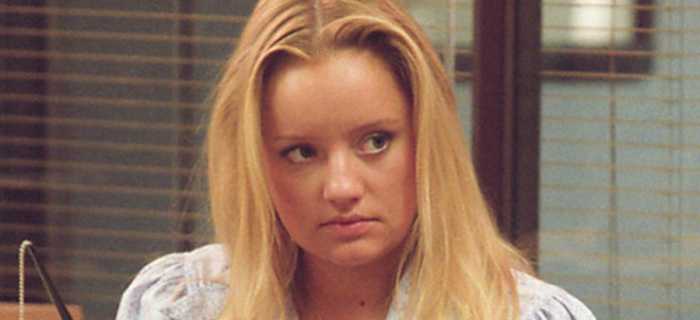
The Love Interest is the fourth, and only female, main character in The Office. She is so called because the Everyman is attracted to her and spends most of the series wishing to be in a relationship with her. Unfortunately for him, the Love Interest usually has a boyfriend already, at least at first. If the Everyman and his Love Interest cannot be together directly, they may instead engage in a long, drawn-out emotional affair, which may or may not eventually turn into a real relationship.
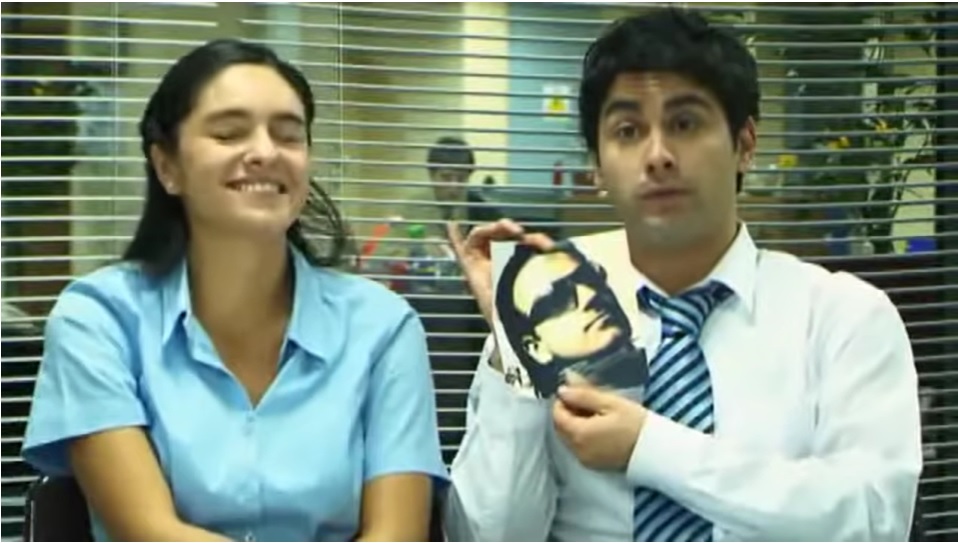
The Love Interest’s problems closely mirror those of the Everyman, in that she is bored and unhappy with both her job and her love life. The Love Interest is smarter and more diligent than the Everyman, and typically performs her job well. At the same time, she also often willingly acts as the Everyman’s accomplice in his various pranks, and otherwise takes his side in any conflicts that don’t involve her current boyfriend. In the original British Office, Dawn Tinsley will sometimes go so far as to invent pranks to play on Gareth, or attempt to convince Tim to prank Gareth more. It is hard to know, however, whether she shares Tim’s sense of humor or is only doing what she thinks he wants her to. On the other hand, Tanja Seifert, the Love Interest from Stromberg, shows genuine compassion for Ernie and asks Ulf to be gentler with him.
The personality of the Love Interest varies, ranging from melancholy and listless in the original British version to spunky and independent in the US Office. However, she is almost never a traditionally feminine woman. She is never shown cooking, cleaning, shopping, or engaging in other typically “female” activities, unless ordered to do so by her boss. Most notably of all, she shows relatively little interest in babies or children, and doesn’t seem to know what to do with them when they are presented to her. This is lampshaded in Stromberg, when Tanja tries to soothe a friend’s crying baby without success, despite claiming to the camera that she is “an instinctive mother.” Dawn also fails to soothe a crying baby, who belongs to the sister of her boyfriend Lee, in the Office Christmas special, and later admits that she doesn’t want to–or perhaps can’t–have children. Pam Beesly, in the US Office, takes things farther even than this, as she is unable to soothe her own baby daughter and has to rely on Dwight to do it for her!
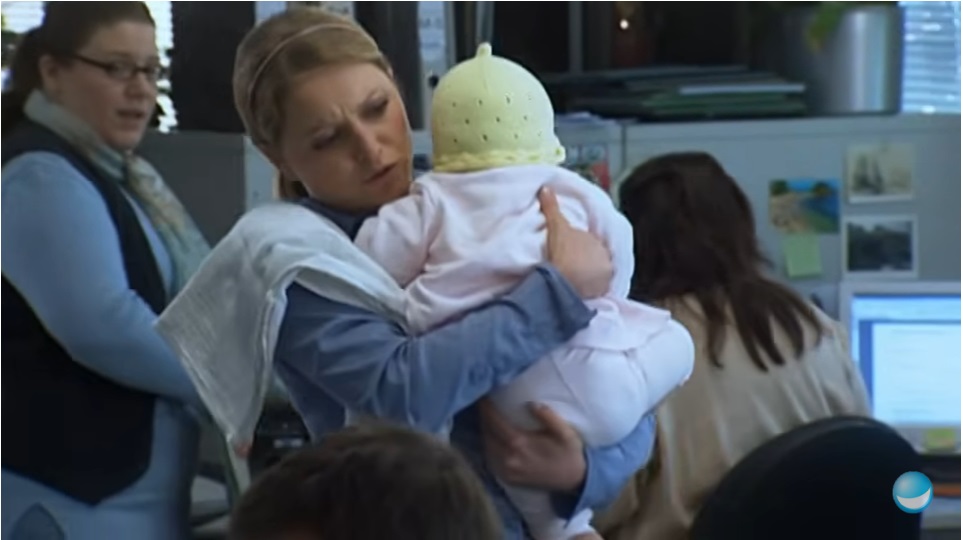
Whether or not the Love Interest gets into a relationship with the Everyman depends on the version. Stromberg was the first adaptation to depict a relationship between the two characters, as Tanja and Ulf become a couple in Season Two and get married in Season Four. Their relationship isn’t all that convincing, however, mostly on account of how selfish and horrible Ulf is. The US Office depicts a much longer and more elaborate love story between Jim and Pam, complete with an extended will-they-or-won’t-they storyline and multiple romantic false leads. Their love affair reaches its climax with a dramatic wedding in Season Six, and continues afterwards as they have children and attempt to build a life together–which eventually includes still more romantic false leads! The relationship between Tim and Dawn in the original British Office ends on an ambiguous note. Tim and Dawn do eventually get together–but only for the Christmas special, at the very end of the series.
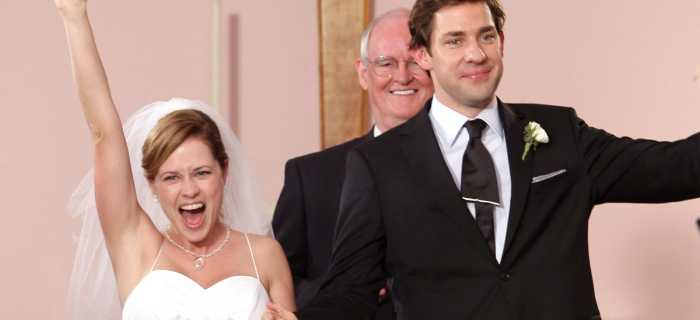
In some versions, by contrast, the Everyman and Love Interest never end up together. In La Ofis, for instance, Rocio Poblete eventually decides to marry her current boyfriend, Marco, despite the connection she shares with Diego, because she believes her life with Marco will be more financially secure. Le Bureau is another series in which the Love Interest and Everyman don’t end up together, but this has to do more with time constraints than anything else, since Le Bureau only covers the first half of The Office‘s storyline.
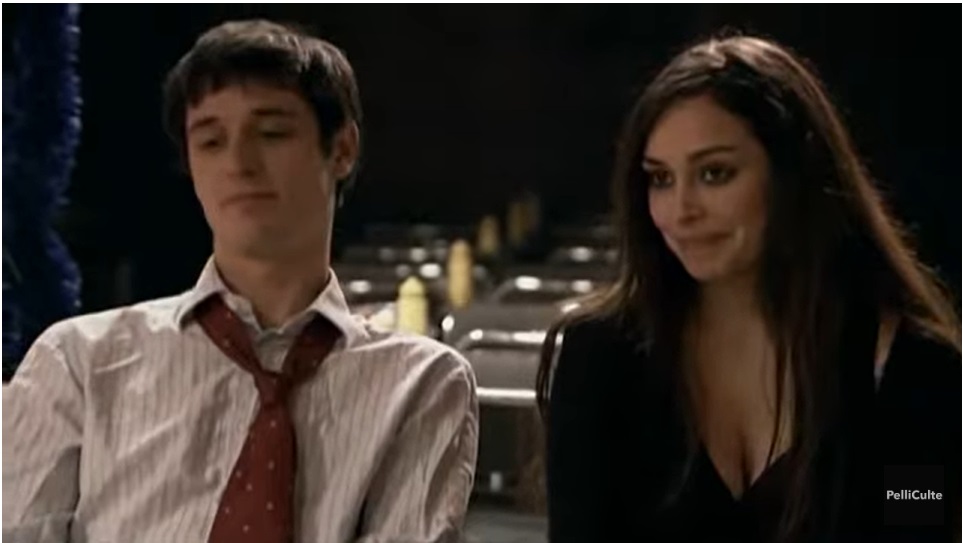
Interestingly, the Everyman is not the only one who has eyes for the Love Interest–the Unprofessional Boss does as well. Nearly every version of the series contains at least one instance of the Unprofessional Boss giving her special treatment, over-sharing about his personal life, talking about how beautiful or cute she is, or otherwise treating her in ways more suitable for a romantic partner than a staff member. For instance, in the British Office, when David takes Dawn with him to a motivational conference he has been invited to speak at, he tells the office staff to “Wish us luck on our date!” In Stromberg, Bernd takes Tanja out to lunch at a restaurant he likes in one episode and buys her gifts on a couple of occasions, as well as asking her for favors and over-sharing details of his life with her. Meanwhile, in the US Office, Michael outright admits that “It would be inappropriate for me to take a bath with Pam. As much as I might want to.” He also flashes Pam twice: once during the “Fun Run” episode, and later when he quits his job at Dunder-Mifflin and invites her to his house to plan his next business move. Despite all this, the Unprofessional Boss is never presented as a serious contender for the Love Interest’s affections. Most likely, any romantic interest he shows in the Love Interest is meant to reinforce his similarity to the Everyman.
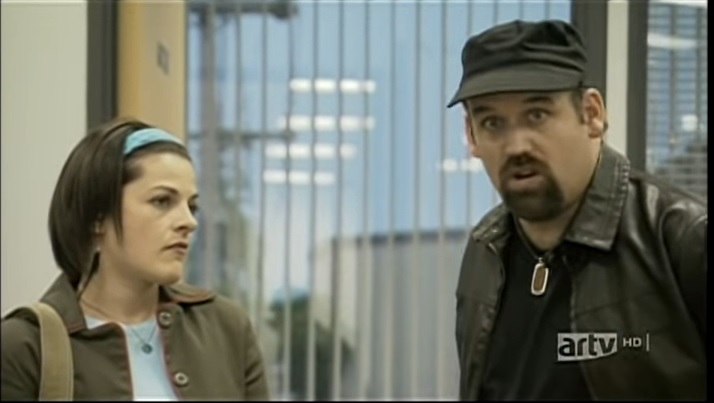
Despite having no fewer than two men–usually more–who want her, the Love Interest is not always especially beautiful. Dawn, from the original British Office, is fairly average in terms of her appearance. It’s telling that Gareth, who is usually the first to notice a beautiful woman when he sees one, admits in a deleted scene that she’s “the only woman I know that I don’t fancy.” 16 The implication is that Tim likes her for the way that she laughs at his jokes, rather than for her looks. Later adaptations put more emphasis on the Love Interest’s looks. Tanja and Pam in particular are absolutely stunning, and Pam’s red hair and green eyes even give her a somewhat exotic appearance. Most other Love Interests are not quite as gorgeous, but still pretty cute.
In general, the Love Interest comes across as someone with little understanding of what a healthy relationship looks like. In the original British Office, both Tim and Lee seem primarily concerned with what Dawn can do for them, with little consideration for what she herself might want. There also seems to be little intimacy between Dawn and Lee–when his fellow warehouse workers tease Lee about not getting sex, Lee acts unconcerned because “I’ve got cable.” Indeed, in a deleted scene, Gareth reassures Dawn that “If you came over to my house begging for it I’d do you,” to which Dawn replies, “That’s nice to know.” 17 Since Tim appears to be just as sexually-repressed as Lee, this problem is likely to continue even after she gets together with him.
The Love Interest’s relationship woes only become more acute in Stromberg and the US Office. No matter how cruel and uncaring Ulf is to Tanja, she never seriously considers breaking up with him and trying to find someone nicer. Even in Season Four, when he openly tries to sabotage her attempts to be a manager out of jealousy, she remains firmly committed to their relationship and marries him anyway. Whilst Jim and Pam’s relationship is more functional, Pam still demonstrates an unhealthy attachment to Michael and a desire to protect him from his mistakes, even risking her own position in order to do so. Most notably, when Michael decides on a whim to quit Dunder-Mifflin and start his own paper company in Season Five, Pam decides to become his first employee. When Pam later becomes disenchanted and returns to Dunder-Mifflin to get her old job back, she finds out that it has already been taken.
The Traveling Salesman
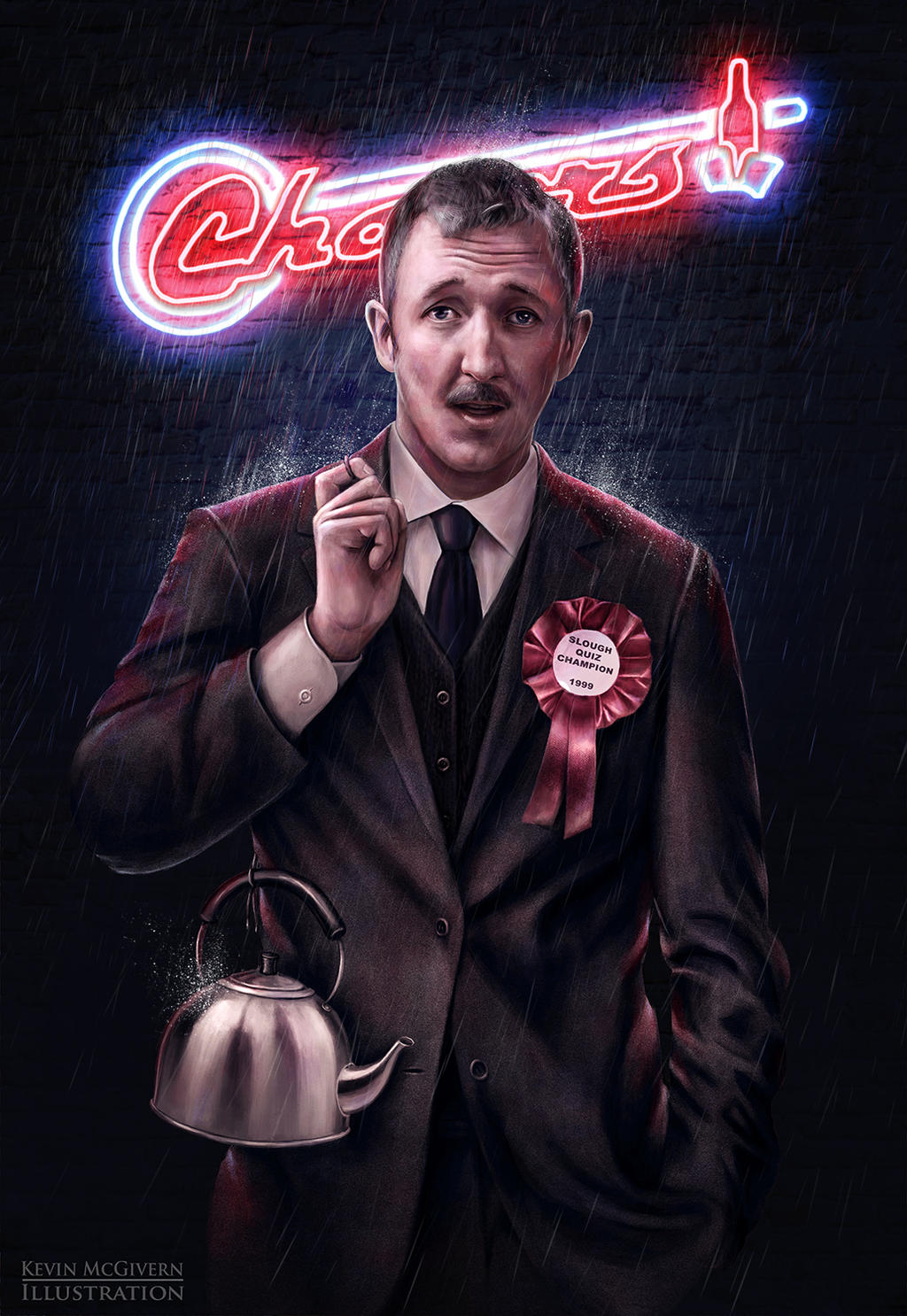
The Traveling Salesman is one of the more prominent of The Office‘s secondary characters, and is present in most versions (though not Stromberg).
The official reason for the Traveling Salesman’s existence is to be so obnoxious he makes the Unprofessional Boss look better by comparison–although in practice he mostly just makes the Unprofessional Boss look like a hypocrite. Most of the time, he comes across as an alpha male of the sort outlined by Jonathan Haidt in his book The Righteous Mind:
Alpha male chimps are not truly leaders of their groups. They perform some beneficial functions, like mediating conflicts. But most of the time, they are better described as bullies who take what they want. Yet even among chimpanzees, it sometimes happens that subordinates gang up to take down alphas, occasionally going as far as to kill them. Alpha male chimps must therefore know their limits and have enough political skill to cultivate a few allies and stave off rebellion.
18
In other words, the Traveling Salesman is a bully who uses his social skills to hold challengers at bay and attract women to him. Carlos Garcia, the Traveling Salesman from La Ofis, actually goes so far as to take over the office for a time while Manuel is away. Still, it is the French-language Traveling Salesmen, on both sides of the Atlantic, who best exemplify this alpha male ethos, as they appear to be the most aggressive and the most successful with women. Todd Packer, from the US Office, is probably the least convincing, but this is likely because nearly everyone in the US series acts like a bullying alpha male (or female) more often than not.
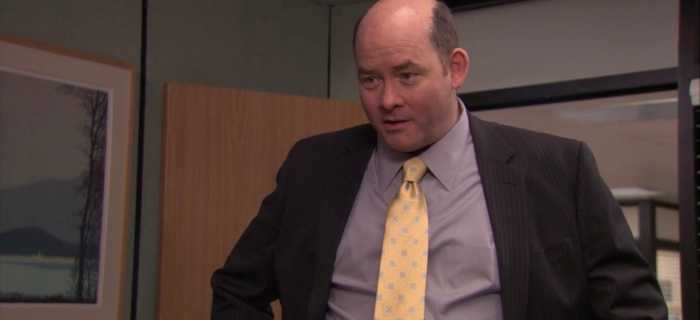
Most Traveling Salesmen remain unattached throughout the series, except for the occasional hookup. Todd Packer is an exception, however, as he was actually married at one point, and often says nasty things about his ex-wife and daughter. Shimmy, the Traveling Salesman in HaMisrad, also strikes up a long-term relationship with an office lady named Riki in the second season of the show.
The Temporary Worker
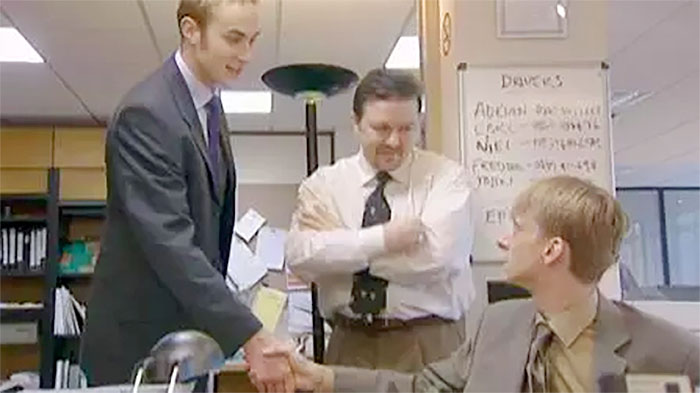
Most versions of The Office also include a Temporary Worker character, who serves as a vehicle for the audience to get to know the rest of the cast. Shortly after he is introduced, he forms a bond with the Everyman and his new boss by making a joke at the Annoying Coworker’s expense. The most well-developed of all the Temporary Workers is Ryan Howard, from the US Office, who becomes a regular character and, at times, plays the role of a villain.
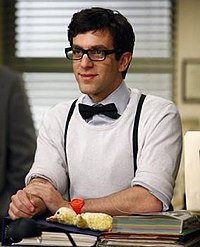
Generally speaking, the main claim to fame this character possesses is his relationship with a pretty female coworker. In the original British Office she is hired by the boss in the second episode as a favor to a friend, whereas in the US Office she is already a regular staff member. Either way, she proves to be a bad influence who brings out the worst in the Temporary Worker and, in many cases, seems to precipitate his departure from the company altogether.
The Temporary Worker often has to endure a fair amount of abuse from the Unprofessional Boss. In most cases, his boss simply disapproves of his romantic relationships. In the original British Office, David also dislikes the fact that Ricky Howard is able to beat him at a quiz game. In the US Office, on the other hand, Michael starts a targeted harassment campaign against Ryan, seemingly because he finds him attractive. In La Ofis, Manuel has a similarly creepy interest in Temporary Worker Pipe, ultimately declaring him to be the sexiest employee at the company picnic. He doesn’t take things as far as Michael does, however. Some fans have speculated that the harsh treatment Ryan faces, as well as his relationship with Kelly Kapoor, are what turn him into what he ultimately becomes. 19
The Funny Accountant

Another character who appears in most versions of The Office is the Funny Accountant. This character is always male and often fails to take his job seriously. For instance, Keith, the British Funny Accountant, openly admits that the reason why he took the job at Wernham-Hogg is that he gets to leave it behind at the end of the day. Despite looking and acting even sillier than the Annoying Coworker, the Funny Accountant is in fact a man of many talents, who loves playing music especially.

The Funny Accountant is usually, but not always, severely overweight and obsessed with food. For instance, in the British Office, Keith Bishop is usually shown eating Scotch eggs in the break room. Sometimes, the Funny Accountant’s love of food will be used as a joke. One of the most famous scenes of Kevin Malone, from the US Office, depicts him dropping a pot of chili he made. In La Ofis, Funny Accountant Cesar develops diarrhea after confusing a laxative for jam and spreading it on his bread.

Although Stromberg lacks an exact counterpart to the Funny Accountant, there are two male background characters who play a somewhat similar role. One of these men, Andreas Hermann, is seriously overweight, and the other, Monte, has thick, silly-looking glasses. Both spend much of their screen time catching the more important characters at inopportune moments and interacting awkwardly with the camera. Of these two, Andreas Hermann is the more similar to a typical Funny Accountant, since he likes to eat and plays the keyboard. The keyboard might be a reference to other Funny Accountants, and Kevin specifically, since it only appears at the end of Season Four, when the US Office would have been well underway.
Romantic Rivals
Both the Everyman and the Love Interest often have at least one person standing between them and their relationship to each other. In every version of The Office except for Stromberg, the Love Interest starts out engaged to be married to a warehouse worker. The fact that her fiance works for the same company as the Everyman leads to many awkward moments, as the Everyman and the fiance see each other nearly every day. Most of the time, the male Romantic Rival is a macho man who is clearly bigger and stronger than the Everyman. In HaMisrad, Dana’s boyfriend Lavi takes this machismo to an extreme by wearing a leather jacket and driving a motorcycle. However, in La Job, Anne’s boyfriend Luc is actually slightly smaller than Louis.

Exactly what attracted the Love Interest to her fiance in the first place is almost never explained, although in the US Office, Roy Anderson was Pam’s high school sweetheart. In any case, the Love Interest’s fiance shows her little care or consideration, and the sheer length of their engagement casts doubts on whether he even wants to marry her at all. In the original British Office, Dawn reveals that she and Lee, her current boyfriend, have been engaged for three years. In La Job, by contrast, Anne reveals that she has been with Luc for eleven years! Interestingly, the male Romantic Rival sometimes has a lot in common with the Everyman. In the original British Office, for instance, both Tim and Lee are passive-aggressive, sexually repressed, and enjoy seeing those they dislike being humiliated.
Generally speaking, the male Romantic Rival has little personality, as he primarily exists as a plot device to keep the Everyman and Love Interest apart. He may show some character growth, however. For instance, Roy, though annoying and passive-aggressive to start, eventually becomes a successful entrepreneur and marries happily once he lets go of Pam. In La Ofis, Rocio’s boyfriend Marco also becomes more affectionate and romantic towards the end of the series, which might be one reason why she decides to marry him. Even in the original British Office, it’s implied that Lee gives up on his relationship with Dawn and willingly lets her go at the end of the Christmas special. Although he and Dawn have moved to Florida to get away from Wernham-Hogg, he seems suspiciously eager to return when the documentary crew offers to cover their flight to Slough.
Many versions of The Office also set up the Everyman with at least one other romantic partner, in addition to the Love Interest. In this way, the series is able to tease the possibility that he might accept that the Love Interest is unavailable and move on from her. In the US Office, Jim has two alternate romantic partners: first Katy, a handbag-seller from Season One, and later Karen, an office lady played by Rashida Jones. Neither he nor any of the other Everymen allow any of their relationships to become serious, however, as they only really have eyes for the Love Interest. It’s even implied in the original British Office that Tim dates Rachel, at least in part, to make Dawn jealous and gauge her own attraction to him.
Stromberg also has a female Romantic Rival in the form of Sabine, an office lady who is interested in sports and flirting with men. Ulf dates Sabine for a few episodes in Season One, but ultimately breaks up with her on his birthday. Even after he starts dating Tanja, he still flirts with Sabine sometimes, which ultimately leads to an argument between the two women. Fortunately, they end up resolving the matter peacefully in the middle of Season Two.
Whilst the Annoying Coworker rarely shows romantic interest in the Love Interest (Ernie being a notable exception), he usually will have feelings for the female Romantic Rival. She doesn’t typically like him back, however. Stromberg includes a few scenes in which Sabine flirts with Ernie, but it’s clear that she’s only doing it in fun and doesn’t much care for him. In the US Office, Dwight, for his part, attempts to flirt with Katy, but shows little interest in Karen.
The Warehouse Staff
Most versions of The Office include a warehouse set piece, which has several people working there. Stromberg is the one exception to this rule, likely because the company it depicts sells a service rather than a physical good. The British series depicts the warehouse staff as creepy and unlikable, and the office staff, with the exception of Gareth and Dawn, typically avoid them. By contrast, in the US Office, the office staff mingle freely with the warehouse staff, often visiting them to hang out or challenging them to games. This might be an attempt on the part of the US Office to seem more egalitarian than its British counterpart. La Ofis makes probably the most interesting use of its warehouse staff, as in one episode they go on strike and hold the office staff hostage!
Apart from the male Romantic Rival, the only warehouse staff member of much real importance is the Warehouse Foreman. In the original British Office, the Warehouse Foreman is a large man named Glynn, whom David calls “Taffy,” whereas in the US Office, he is a Black man named Darryl. In the latter part of the US series, Darryl becomes an office worker as part of a new minority training initiative, and subsequently a successful entrepreneur.
The Female Corporate Higher-Up and the Professional Boss

The Female Corporate Higher-Up and the Professional Boss are some of the characters whom the Unprofessional Boss reports to. Their roles are fairly interchangeable, except for the fact that one is female and the other is male. Because of this, not every version of The Office has both, and those that do might not have one of each. For instance, the US Office has two Female Corporate Higher-Ups (Jan Levinson in the earlier seasons and Jo Bennett after Sabre’s takeover of Dunder-Mifflin), and Stromberg has two Professional Bosses (Sinan Turculu for Season One and Timo Becker afterwards).
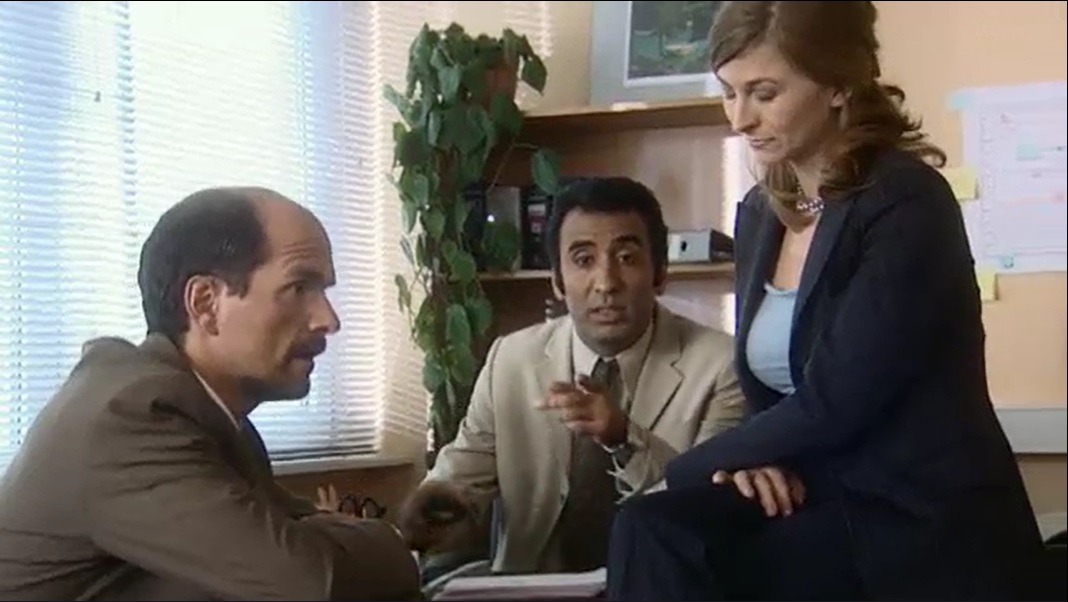
The Female Corporate Higher-Up is usually introduced in the beginning of the series, as the Unprofessional Boss’s immediate superior. Being incredibly sexist, the Unprofessional Boss naturally chafes at her authority and tries to undermine her–usually behind her back–any way he can. Many Unprofessional Bosses will come up with insulting nicknames for the Female Corporate Higher-Up. For instance, David admits to sometimes calling Jennifer Taylor-Clarke “Camilla Parker-Bowles,” and Bernd often refers to Tatjana Berkel as “Tuberkel.” In most versions of the series the Female Corporate Higher-Up very likely rose through the ranks of the company much as the Unprofessional Boss hopes to do. However, in La Ofis, Papeles Lozano is family-owned, and Jimena is the wife of the company’s founder. When he is diagnosed with terminal cancer, she takes over his role as the head of the company.
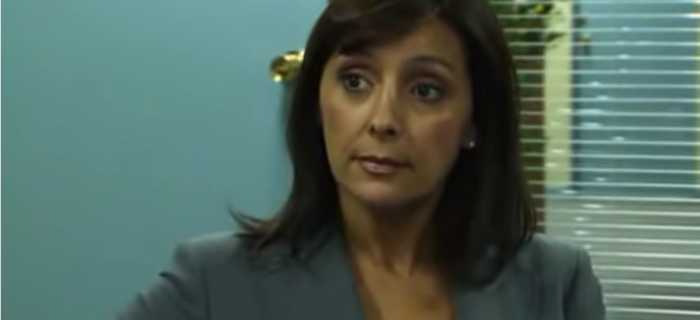
The Professional Boss, meanwhile, is everything the Unprofessional Boss wants to be: confident, effortlessly charming, popular, and–for the most part–a genuinely nice person, at least at first. Interestingly, he is also often a person of color or, at very least, from a different cultural background than the Unprofessional Boss. For instance, Neil Godwin, from the British Office, is likely part Middle Eastern, 20 Charles Miner (from the US Office) and Pierre (from La Job) are Black, and Sinan Turculu is Turkish.
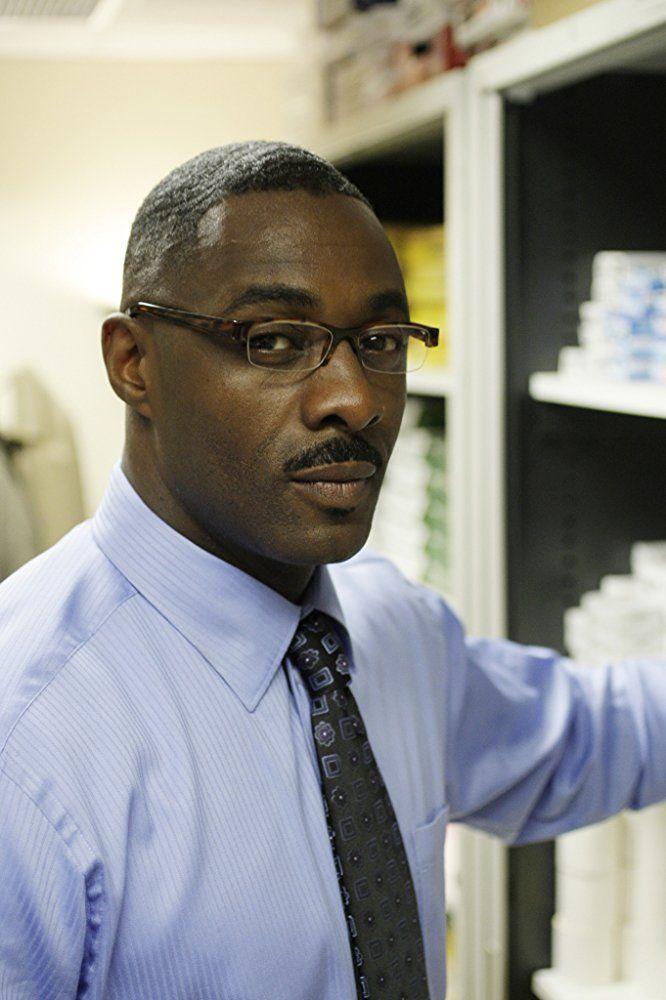
Still, rather than a hero who frees everyone from the tyranny of the Unprofessional Boss, the Professional Boss is typically portrayed as an antagonist, who serves to oppress the Unprofessional Boss and limit what he can do. The series accomplishes this in two major ways. In the first place, the Professional Boss is typically not introduced until many episodes after the start of the series, and so he poses a threat to the Unprofessional Boss, whom the audience has been building up a relationship with since the show began. Secondly, the sheer competence of the Professional Boss allows the Unprofessional Boss to look like an underdog in comparison, even if it is his own fault 21.
Generally speaking, both the Female Corporate Higher-Up and the Professional Boss function as straight-laced foils to the Unprofessional Boss. There are some interesting exceptions, however. For instance, both Jan and Herr Becker are ultimately driven insane from the stresses of dealing with the Unprofessional Boss over a long period of time. Whilst Herr Becker never recovers, Jan eventually regains some kind of form towards the end of the US Office. She remains a terrible person throughout, however.
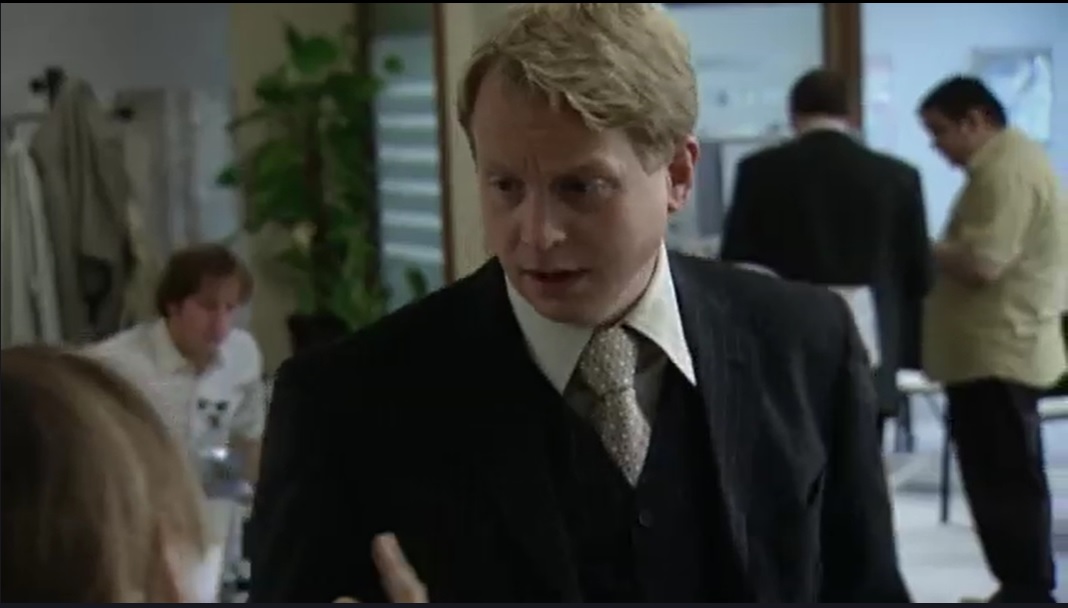
The US Office’s Innovations
The US Office introduced many new characters to the Office mythos, as well as reinventing some of the relationships that already existed between characters. Later versions of The Office adopted these changes, until they became standard. It is difficult to know how much the US Office can truly take credit for, and how many innovations can be rightfully credited to Stromberg. However, at least some of the changes are clearly the US Office’s own.
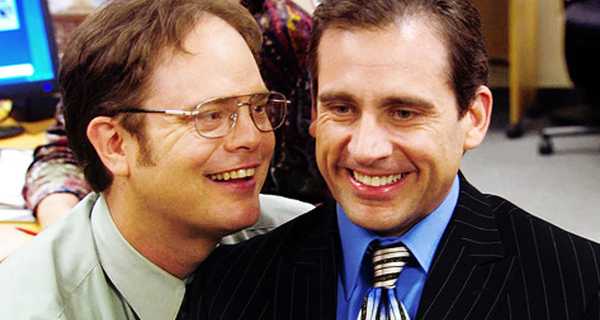
One of the most influential changes made by the US Office was casting the Annoying Coworker as a flatterer who sucked up to the Unprofessional Boss. Although Dwight was not the first Annoying Coworker to claim to have a special relationship to his boss, he was the first to intentionally engage in acts of self-humiliation for his boss’s sake, and to willingly encourage and participate in his more outlandish schemes. This one small alteration in the cast dynamics has been copied by every subsequent version of The Office, and is perhaps most notable in the French-language Annoying Coworkers, Joel and Sam. Since Le Bureau and La Job follow the exact same plot as the original British Office, Joel and Sam act and talk a lot like Gareth–except for their tendency to suck up to Gilles and David, respectively. Nowadays, many commenters assume the Annoying Coworker has always been a suck-up, 22 even though this is not the case for Gareth or Ernie.
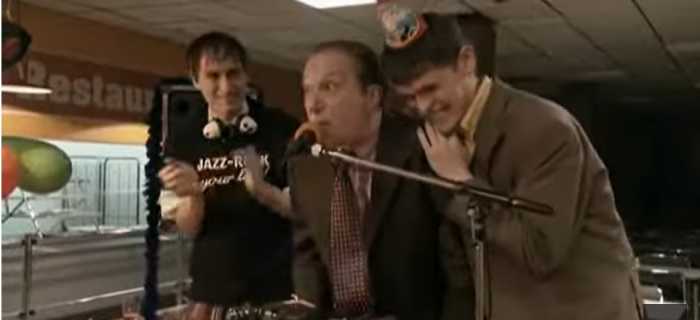
Another change the US Office made was to democratize the talking-head segments, one-on-one (or sometimes two-on-one) interviews with the cast that lend the series its “mockumentary” feel. In the original British Office, very rarely will anyone who is not a main character ever be interviewed. Stromberg interviews a few of the side and supporting characters, and admits more interaction between them and the camera. However, the only side character who appears in talking-head segments with any regularity is Jennifer, and only after she becomes Bernd’s girlfriend. By contrast, in the US Office, just about any of the characters can be interviewed, at any time, and most later adaptations follow its lead. The French-language versions are the main exceptions to this, but only because they copy the British series’ formula so closely.
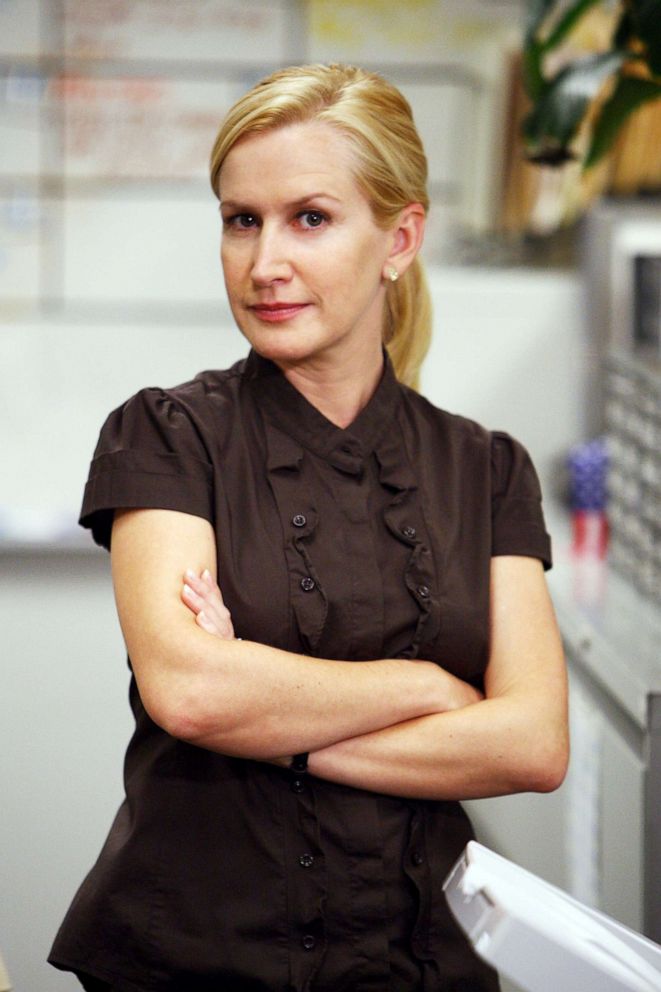
The US Office also greatly expands upon the roles of a few of the office ladies (besides the Love Interest). One of these characters is an uptight female accountant. In the US Office, this character is named Angela Martin; in La Ofis she is called Teresita; and in HaMisrad her name is Leah. Leah stands out as the only religious character in her series, which is probably a reference to Angela’s interest in religion. It’s common for this character to be in a romantic relationship with the Annoying Coworker, as well. For instance, Angela actually ends up married to Dwight in the finale of the US Office. Christian and Teresita also exchange some cute moments in La Ofis, including dancing together at the company barbecue. This idea might have its origins in the original British Office, as Sheila, a female member of the accounting team, is one of the few people who seems to like and admire Gareth from the beginning. There is no evidence of their being romantically involved, however.
The other office lady developed by the US Office is a dumb, shallow, manipulative woman, whose primary aim, more often than not, is to seduce and ensnare the Temporary Worker. This character also has roots in the original British Office, in which David hires a young woman named Donna as a favor to her parents, only for her to turn out to be lazy, bad-tempered, and incompetent. Stromberg attempts a similar subplot in the Season One episode “Die gute Tat (The Good Deed),” although the character in question lasts for only one episode and has no bearing on the overall story.
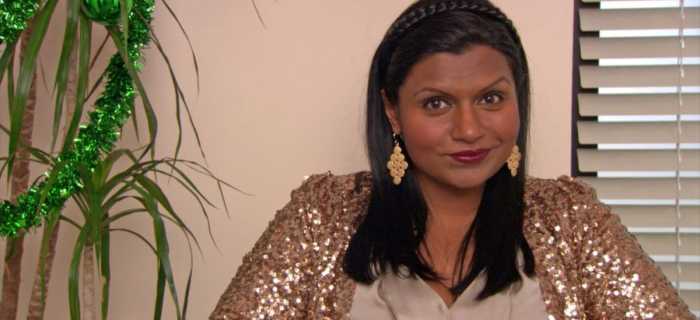
In the US Office, by contrast, the character is a full-time staff member named Kelly Kapoor, who works in the customer service department. Characters based on Kelly include Trini from La Ofis–whom Christian attempts to impress at one point by claiming he loves the film Titanic–and the HaMisrad character Shiri. Shiri shares with Donna and her French-speaking sisters the characteristic of being hired during the series as a favor, but her role, and romantic relationship with Temporary Worker Regev, are greatly expanded and thus more similar to that of Kelly. Interesting, in the US Office and the Finnish and Swedish adaptations, this character is a clear ethnic minority (Indian in the US, Muslim in Finland, and clearly not ethnic Swedish in Sweden), whereas in the British Office, and those adaptations more faithful to it, the character is of the same race as the majority of the cast.
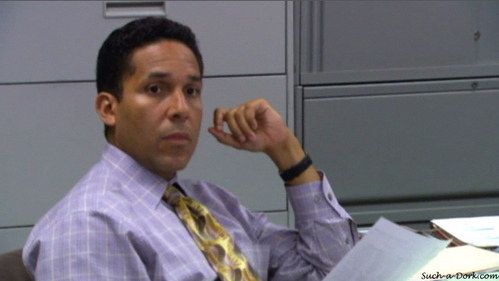
The US Office also introduces more male minority staff members, and more prominent ones, than existed in previous versions. Of all such characters, the one that has had the most influence on other versions of the series is Oscar Martinez, an accountant of Mexican descent who also happens to be gay. HaMisrad also has a gay accountant, Abed, who is an Arab Muslim. Jesus, from La Ofis, has some traits in common with this character as well, since he is an ethnic minority and gets made fun of for this; however, he is neither an accountant nor gay.
A final character introduced by the US Office is Toby Flenderson, the human resources representative. Toby’s primary goal throughout the series is to maintain some semblance of order in the office, but he is generally unsuccessful. Michael despises Toby, allegedly for trying to limit or ruin his fun, and abuses him every chance he gets. Toby has at least one clear successor in the form of Benito, a character from La Ofis. This character is sent to Manuel’s office to give a seminar–which Manuel proceeds to hijack and sabotage–in the episode “Bienestar Laboral (Worker Well-Being),” and later stays on as a regular cast member. The office staff are generally nicer to Benito than to Toby, however. A Toby analogue also exists in Konttori, the Finnish adaptation of The Office. 23
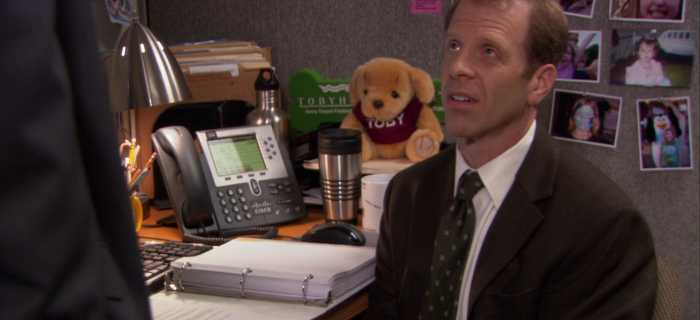
How To End The Office
The adaptations of The Office have different strategies for constructing an ending that is satisfying for all the characters involved. Since The Office is, fundamentally, a comedy, nearly every adaptation tries to end on as high a note as possible. Of all the different versions, the original British Office is the one that has the most traditional “happy ending,” in which virtue is rewarded and those who hurt others are humbled. The Christmas special adds even more cheer by suggesting that there is hope even for the least sympathetic characters, like David. The US Office has received a lot of press for its cheerful, fairy-tale style ending, in which the main characters and their loved ones are together and happy. The mood is somewhat dampened, however, by the bad behavior of the main cast up to that point.
By contrast, the Stromberg TV series has no happy ending at all. Bernd has, at least, successfully acquired Herr Becker’s old position (through treachery and deceit), but the last shot of the series depicts him sitting in his office with a sour look on his face, as though he is wondering if his actions were worth it. Meanwhile, Ulf is driven out of Capitol Insurance due to fighting with another worker, and Tanja follows him in order to stand by her man. Ernie, like his English-speaking counterparts, ultimately ends up with Bernd’s old job–but only at the cost of selling out to his staff and becoming yet another incompetent, “fun” boss.
Alternatively, some versions of The Office end with nothing significant having changed. In both Le Bureau and La Ofis, for instance, everything is more or less the same at the end of the story as it was at the beginning. The series pull this off, once again, through narrative misdirection and manipulation. In both instances, the higher-ups in the company threaten the branch with closure, which would lead to everyone who works there losing their jobs. In Le Bureau the episode follows much the same pattern as its British counterpart, in which Gilles accepts a higher company position, only to reverse course when he fails a health examination. In La Ofis, the branch is also threatened with closure, only to be saved at the last moment by a stroke of luck. Both series also conclude with the entire cast taking a group photo, feeling happy and relieved that they get to keep their jobs–even though they are no better off than they were when the show began.
Most versions of the mockumentary series The Office show a striking similarity in terms of their characters and plot. They share the same four main characters, and many of the supporting cast as well. At the same time, no two versions are exactly alike. Every culture puts its own spin on the characters, and every adaptation of The Office includes its own culturally-specific references and inside jokes as well. As a consequence, The Office, despite its misanthropy and cynicism, has become a surprisingly effective tool of cross-cultural understanding and exchange.
Works Cited
- Turner Garrison, Laura. “Exploring the International Franchises of The Office.” Vulture, 4 May 2011. https://www.vulture.com/2011/05/exploring-the-international-franchises-of-the-office.html ↩
- The Office. 2023, January 17. In Wikipedia. https://en.wikipedia.org/wiki/The_Office ↩
- ibid. ↩
- Woo, Edo. “‘La Ofis’ podria volver pronto.” La Tercera, 30 March 2017. https://www.latercera.com/mouse/vuelve-la-ofis/ ↩
- Garrison, 2011 ↩
- Stromberg (Fernsehserie) (2023, January 16). in Wikipedia. https://de.wikipedia.org/wiki/Stromberg_(Fernsehserie) ↩
- “Das Beste vom roten Teppich – Stromberg – Der Film – Weltpremiere.” YouTube, uploaded by MySpass Classics, 19 February 2014. https://www.youtube.com/watch?v=gtkReOY2AE4 ↩
- “The Office: The Power of David Brent | Video Essay.” YouTube, uploaded by Full Fat Videos, 28 January 2019. https://www.youtube.com/watch?v=A1_aU6zaiyo ↩
- “Every Jim Look by Anyone BUT Jim – The Office US.” YouTube, uploaded by The Office, 6 November 2021. https://www.youtube.com/watch?v=codiQHUp-1E ↩
- “The Slow Downfall of Jim Halpert – The Office.” YouTube, uploaded by captainmidnight, 29 October 2021. https://www.youtube.com/watch?v=oIGTKvv3_yA ↩
- Travers, Mark. “A New Study Explores The Fragile Reality Of A ‘Vulnerable Narcissist.'” Forbes, 29 March 2022. https://www.forbes.com/sites/traversmark/2022/03/29/a-new-study-explores-the-fragile-reality-of-a-vulnerable-narcissist/?sh=4c3d5d9035a1 ↩
- Full Fat Videos, 8:02 ↩
- “Episode one.” Disc one. The Office: special edition, produced by Ash Atalla, BBC Worldwide Ltd. Program, 2011 ↩
- Hitchens, Peter. The Abolition of Britain. Encounter Books, 2000 ↩
- “The Office’s Dwight Schrute – Go Your Own Way.” YouTube, uploaded by The Take, 1 September 2018. https://www.youtube.com/watch?v=x_mLCXgv1-g ↩
- “Deleted scenes.” Disc three. The Office: special edition, produced by Ash Atalla, BBC Worldwide Ltd. Program, 2011 ↩
- ibid. ↩
- Haidt, Jonathan. The Righteous Mind: Why Good People Are Divided By Politics And Religion. New York, NY, Vintage Books, 2012, pp. 198-199 ↩
- “The Office’s Ryan – A Millennial Tragedy.” YouTube, uploaded by The Take, 16 February 2020. https://www.youtube.com/watch?v=nQ1hGDe9R74 ↩
- IMDb. “Patrick Baladi: Biography.” The Internet Movie Database. https://www.imdb.com/name/nm0049346/ ↩
- Full Fat Videos, 9:03-9:16 ↩
- Schillinger, Liesl. “Foreign Office: The French and Germans have remade the BBC series. Why?” Slate, 20 September 2006. https://slate.com/culture/2006/09/french-and-german-remakes-of-the-bbc-s-office.html ↩
- “Kun Adaptaatio Epaonnistuu || The Office Vs Konttori.” YouTube, uploaded by JakkiMiimikko, 5 December 2021. https://www.youtube.com/watch?v=7t4yusENICw&t=1166s ↩
What do you think? Leave a comment.











It was a pleasure to edit this, and I love seeing how this turned out! Interesting article, and I’m so happy to see it on the site. Great job!
I’ve often had to wonder whether the creators of the US Office ever watched Stromberg, because it strikes me as a sort of “missing link” between the two English-language Office adaptations. It’s much longer and darker in tone than the original British Office, like the US Office; but it shares with the British Office a dry sense of humor and a commitment to having the characters look and act (for the most part at least) like real office staff. Stromberg even pioneered several of the tropes that are associated with the US Office today, such as making the manager a womanizer or having a clear office romance subplot.
I love the the office Hindi, mainly because Chaddha reminds exactly of an Indian Michael Scott.
Is it really a secret that the office has taken over the world?
I bought the DVD of the original The Office. I thought that it was so awful, I threw it away. Unwatchable. I love Gervais as a stand-up comedian but this was unwatchable. Steve Carrell’s Office is no funnier, there’s even more of it! So I am not holding my breath for any of the other versions discussed in this article.
Interesting. Do you work in an office? Just asking as my parents didn’t think it was funny either, but neither of them has ever worked in an office.
I don’t think that matters really, I and many friends who loved the Office don’t and didn’t work in one, something is either funny to you or it isn’t. It isn’t only people who live in Space with evolved cats who love Red Dwarf for example.
Interestingly, I find that the more I watch different versions of The Office (especially in English), the less funny I find them. I suspect it has something to do with the fact that they showcase such selfish and horrible people. The British version remains at least somewhat funny insofar as the abusive boss is himself the butt of most of the jokes; but by the time we get to the US Office (as well as later Stromberg), it feels more like we’re being asked to laugh with him at the expense of his victims.
I fully accept that the US remake was highly competent, and a rare example of a transatlantic remake that worked. But I can’t understand how people could place it above the original. Perhaps it’s recency bias? Or the fact that the original Office entered our general culture to such an extent that we forget how revolutionary it was when it first aired.
I’m not Gervais’ biggest fan, but I’ll happily concede that his Brent is a comedy creation that can sit alongside Fawlty and Rigsby. The Office is at that rarified tier of British situation comedy. And it has been massively influential, with dozens of lines finding their way into our common lexicon.
The remake by comparison is fine. It’s funny. It has story lines that grab you. It’s got an American writing room full of zingers. But it is dwarfed by its predecessor. I don’t think I’d even put it above Friends in the American sit-com pantheon—I doubt many would.
The key thing for all these remakes is that they reflect the office culture of where they are made. The British one was so familiar, the comedy beautifully observed from the tiniest of tweaks to what dull routine in an office actually looks like. I imagine that the US one was similar, although as I’ve never worked in a US office, I don’t know. But for it to work, it had to be accurate to its own culture.
I’ve never seen the uk version, I got hooked on the American one, fantastic cast, humour and ad libs.
The Office was an impressive, ground breaking sitcom.
The finale of the British The Office is my favorite episode of all these adaptations. Don’t you all think? I love the Christmas special.
Until the final episode of series three of Detectorists, there hasn’t been a more perfect episode in British TV history, whether comedy or drama. There’s such a wholesome, grounded, real (as opposed to realistic) tenderness that American TV can never replicate.
I still have The Office Christmas specials down as my favourite ever pieces of television. It was the perfect finale and the happy ending the show deserved. Even Brent came out of it in a good light.
I’m far from an emotional type but when Dawn turns over the note and sees “never give up” next to the picture she drew of Tim, it gives me a lump in my throat every single time. And then when she returns to the office and you see her face come into focus in the background…I’m just gone. It’s made all the more brilliant by Yazoo’s ‘Only You’ playing in the background…or is it Yaz? What’s your cut-off point?
Office Christmas parties in London were a hoot and one of the few real pleasures of Christmas in the UK. I missed them very much when I moved to another country many years ago and found that the local office gatherings were merely tame, timid, and tedious.
It was a happy satisfying ending and I’m glad they let us have that. I also remember the nice touch of David Brent’s date telling him to just take the personal appearance money and not worry about it. That showed kindness and was part of the show’s warmth.
As an all-time sucker for a happy ending, I loved it but haven’t had an opportunity to see it since, so any suggestions (other than buying a DVD)?
Yup, I watched it again recently and still loved it. That beautiful awkwardness has never been captured better in a comedy. Thrilled for Dawn and Tim of course but also that David got a chance at happiness too. A Christmas classic for sure.
Next adaptation is the Australian version of The Office with Felicity Ward! Anyone excited about it?
Felicity Ward? It will be unfunny and overacted. The success of the UK and US versions worked because the ‘over-the-top’ characters were believable because the actors did not over play their hand. Ward relies on over playing a part to cover for thin material. Hope I am completely wrong, but this will be an embarrassment.
I feel bad because I feel that Felicity is a terrific person I’m sure, it’s just that I personally struggle to find her funny.
I’ve watched her stand up and on panel shows, I’m obviously not getting it.
I hope that this may be the role that she makes me crack up.
I’m keeping an open mind, but I’m a bit worried that she’ll play the role as a loveable angst-wracked goof presiding incompetently but benignly over a cast of eccentrics. Felicity Ward might club this one out of the park, but Brent isn’t an easy part to play well. I could imagine Gina Riley doing it, but we’ll have to wait and see how it pans out.
I think Felicity Ward’s an interesting choice of casting. While she can put on a public persona of “daffy” when she wants to, and she has a particular stand-up persona/brand, I suspect she’s got a broader range than that.
The thing is, will it be funny? Weirdly, I could see Ward really pulling off a drama, where her character starts out a bit glib and shallow, and then gradually realises how things are and how much she’s disliked. A key attribute of the Brent character is his eternal cluelessness, where as Ward in real life has much more of an “in the end nowhere near as silly as she pretends” vibe.
This is bound to be as ridiculous and cringeworthy as Aunty Donna’s Coffee Cafe. Please spare us the pain. Australian comedy shows are really awful, especially when they are copies of the real thing. The US version was cringe enough. Please put the funds into Four Corners and leave the comedy to the British.
This is going to be a disaster. Australian sense of humour doesn’t fit with this style of comedy. It’s going to be cringe and not in a good way. The Office has been done to death – come up with something unique instead of copying other cultural ideas…
We already have Utopia – isn’t it much the same thing? 🙂
I dont get the fuss re Office US – Michael Scoot was just a moron, Jim a pernicious runt, Dwight a complete caricature. The UK version is up there with my all time greatest in entertainment!
The US office is probably the greatest TV show ever made. It surpassed the british version by the end of season 2. I don’t get the impression you’ve even watched much of it.
Comedy is the hardest genre.
It is rather sad that Ricky Gervais has become David Brent.
My suspicion, for what it’s worth, is that it’s not so much that Gervais “became” David Brent as that he’s always been that way. Brent was just him taking the mask off.
He always was!
The Office is glorious. Reminds me of previous workplaces (no wfh back then), no flatscreens & the general dated atmosphere.
I genuinely think this is the best TV show we will ever see in terms of its relatability. The twat boss, the office romances, the tedium of work, the gits you meet there, the often vain/pathetic attempts to alleviate the boredom.
Fantastic lines that resonate. Like Tim reflecting on the office and his colleagues and stating the only thing he had in common with them is that he walked on the same bit of carpet.
That must resonate with all those who work in an office and have to fit in or navigate around office politics or smile at people they loath.
Ok I’m sure some of you enjoy it…can’t say I was ever bothered and thank my lucky stars I work from home.
The American version of the Office was very good. But the British version, for me, has always been better!
I found the American re-worked version of the office, unwatchable.
I loved it. I thought it was funnier but I also thought it was in no way the same sort of thing.
Unwatchable & unfunny.
I always found the British version unwatchable because or Ricky Gervais. The American version is much preferable.
The success of the Office relies on having a self absorbed narcissist and sociopath as the manager.
I’ve seen clips from the Indian Office and the Indian boss guy is great! He’s more of a Michael than a David, and even though I don’t speak anything but English, I like the performances, the nuances.
What is interesting from a British perspective is that the “American comedy remake” is almost always viewed as a disaster. Us original Office fans were almost all against an American remake. I had no interest in watching it, until I saw clips from Diversity Day, and realised “hey, they’re actually going for this”. If you’ve seen The Inbetweeners USA- that’s what we were expecting.
The show is at its core the most simplest idea. Its about people working in a office, something every country has and can find something to relate to. All they need to do is change it to affect that country culture and you have a success. That and how its a very cheap show in terms of how its made making it very easy for other countries to want to do.
Wasn’t a fan of The Office, probably because I found it too closed to reality.
The Office was a perfect comedy series for it’s time.
Fawlty Towers
Filthy Rich and Catflap
The Office
Full stop.
The Office was probably the only good US adaptation of a British comedy ever (maybe Sanford/Steptoe & Son is another?)
As a Finn, I can say that the Finnish Office “Konttori” is complete ass and watching it is a punishment I wouldn’t even wish on my worst enemy.
An international remake that I thought was better than the original would be the American Shameless. The actors inject more personality in their characters. Also, said characters are much more fun to watch on their various misadventures, even though some of them are sociopaths and/or psychopaths. That’s just my two cents.
I remember when the office was airing I tried to watch it but I HATED it. I had a deep-rooted hatred for the show. Then I got a little older and decided to give it another shot. Now it’s probably my favorite show of all time.
The Swedish version is strangely sort of a spinoff from two shows. The Brent/Scott character is a side character from a popular Swedish show. I only saw a few episodes of “Kontoret” and I can’t remember if they really used any of that character’s original characteristics for the series, as I recall he was basically the same as Scott.
It works because his character in the original show (Solsidan), whilst moreso being a comic foil to the main characters, shares some traits with Michael such as believing himself to be way more popular and liked than he is and constantly wanting to be the center of attention, whilst his neighbours/former classmates (the protagonists of the show) basically just finds him annoying and doesn’t want to have to deal with him.
I’d like to add up that Brazil had the most different “the office” copy, Os Aspones (The Aspones) that used The Office formula to mock public employees. It’s quite different from the “cake recipe” the other copies used.
The office might as well be a template like a western.
I’m surprised Japan doesn’t have a version of the office.
That’s be a dystopia.
I never seen the office, but I saw a clip of the Saudi Arabian version of Dwight setting a fire and I did not understand a single word but was laughing the whole time, made me check out the office afterwards
Great piece. It’s like being able to see inside the real life versions of those offices in those countries. 🙂
I would love for all the Michael Scotts to meet each other.
I want a special multiverse episode where everyone meets.
Stromberg is unbelievably funny and cringe-inducing. You’re on an constant edge between laughter and second hand embarrassment. I love it.
For me personally, Stromberg is more entertaining than the US Office.
The boss in the swedish adaptation of the office was also a character in another show where he was an annoying neighbor.
The older i get the more I appreciate this show. It is truly timeless.
OMG I did not even know we had one in Sweden!
No other role has ever been casted as perfectly as Steve Carol for Michael Scott.
As a french, I had no idea we had a french The Office. And I’m affraid to check it out.
At the height of it’s popularity Stromberg had a comedic spoof, it was called “Obersalzberg” and it was hilarious.
I think one of the biggest things about The Office’s success is how cheap it is. The sets, costumes, props, stories, are all deliberately low-budget and mundane.
There’s a lot of beauty in ordinary things.
Stromberg > The Office.
I’ve recently watched rhe Chilean version of the office, “La Ofis” and it’s so good. With each episode it actually gets funnier and funnier.